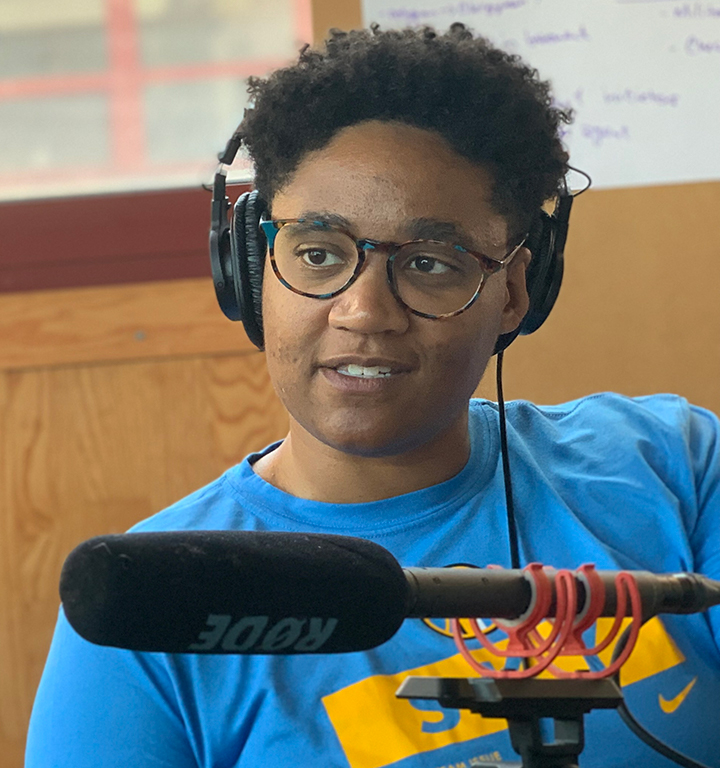Erisa Apantaku ’14 Wins Pulitzer for Podcast About a Hate Crime
Apantaku’s podcast explored systemic racism in Chicago through a 1997 hate crime
“I really loved how we had to take classes outside of our major,” the ecology and evolutionary biology concentrator says. “Each semester I was like, ‘Oh, which distribution requirement am I going to cover this time?’ And so I saw this class being offered and I just thought, ‘Oh, this is interesting.’” The class in question was a course in audio journalism taught by NPR executive producer Steve Drummond, and it opened a new door of possibility for Apantaku’s career.
While she had thought she might become a doctor, Apantaku decided after graduation not to take the MCAT but rather to teach elementary school science in Taiwan. “While I was there, it was just such a great opportunity to learn and explore what I actually wanted to do.”
Apantaku bought a microphone and recorder and began interviewing people she met in Taiwan, editing the interviews in the style of “Love and Radio,” a storytelling podcast that launched in 2005. When she moved home to Chicago after her teaching stint, she decided she wanted to keep creating and sharing stories, so she started volunteering for a community newspaper called Southside Weekly and relaunched their podcast.
“I hustled around Chicago and created a weekly radio show that had different segments — interviews — every week for a year. It was exhausting,” she says. But the hard work paid off.
Southside Weekly shared office space with the Invisible Institute, and the nonprofit journalism production company recruited her as a fellow before hiring her full time. In the summer of 2020, as Black Lives Matter protests took off across the country, Apantaku was put on a team project to help Yohance Lacour, a formerly incarcerated journalist, tell his story.
In “You Didn’t See Nothin,” Lacour revisits a hate crime from 1997 in Chicago, in which a Black boy was beaten by a group that included the son of a powerful white man who had ties to powerful Black leaders in the community. Apantaku notes the podcast goes deeper than the usual flashy true crime podcast, putting a spotlight on systemic racism in Chicago and the impact that dynamic has had on the Black community there.
“It’s not just this sort of sensationalized story — we really try to talk about big issues like reconciliation and forgiveness,” Apantaku says of the podcast. “I like that we just don’t submit to, ‘Oh, this is a bad guy, this is a good guy.’ It’s like, no, these are all just complicated human beings.”
Apantaku says the biggest test for “You Didn’t See Nothin” was how it resonated with Black Chicagoans, whom she was glad to see “love” the final product. Critics agreed, honoring the limited series on numerous “Best Podcasts of 2023” lists and with the coveted Pulitzer Prize and Peabody Award this spring. Apantaku says the recognition — that the committees of these major awards valued the team’s approach to storytelling — felt “amazing.”
Apantaku says she encourages aspiring journalists to be curious and listen to the people around them without judgment. “I just wish we could all look at each other with more nuance because there’s so much story in a person’s life,” she says, adding that she thinks everyone has an “amazing story.” “Like we explore in the podcast, everyone is so complicated, and I think you have to really listen — and listen nonjudgmentally, just openly.”












No responses yet